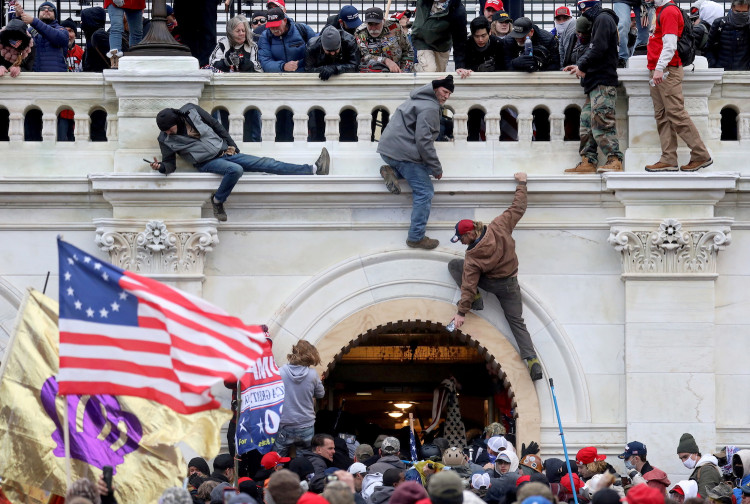On Thursday (June 23), lawmakers investigating last year's attack on the U.S. Capitol laid out Donald Trump's "brazen" efforts to recruit the Justice Department into his scheme to overturn his 2020 election loss to Joe Biden.
At the fifth hearing of its year-long investigation into the insurgency, the House of Representatives panel detailed Trump's campaign pressure on officials to falsely claim that his presidency was stolen by widespread voter fraud.
Former acting Attorney General Jeffrey Rosen testified on June 23 as the House committee investigating the Jan. 6 attack released its findings to the public.
Rosen testified that in the days leading up to Jan. 6, former President Donald Trump asked top DOJ officials in a meeting to seize voting machines from states and investigate accusation of election fraud. Rosen told the president that was not going to happen.
As Trump's requests were repeatedly denied by DOJ leadership, he became more obsessed with Clark, whom Rep. Adam Kizinger (R-Ill.) described as a "environmental lawyer with no experience relevant to leading the entire Department of Justice."
The committee revealed new information about how and why Clark was thrust into the president's orbit. He was willing to support the claims of voter fraud that the other officials dismissed.
It was also revealed that Trump considered appointing Sidney Powell, a campaign attorney who is now facing disbarment due to faulty voter fraud allegations she presented in court, as a special counsel to investigate election fraud.
Clark was almost charged with contempt of Congress after walking out of his first deposition with the committee. While he later returned, he largely pleaded the Fifth Amendment, leaving much of what is known about the incident to be based on testimony from DOJ and White House officials.
Clark had a series of phone calls with Trump, unbeknownst to Rosen and Donoghue, whom he had promised to notify of his activities after they told him his White House contact was inappropriate.
However, on Jan. 3, Clark informed Rosen that Trump would promote him to acting attorney general. Clark then offered Rosen the position of deputy to him.
Justice Department lawyers and even Trump's own White House counsel were able to talk Trump out of the plan, largely by berating Clark and joking that if he walked into the FBI director's office, he wouldn't know who Clark was.
They also relied heavily on the fact that nearly all of the top assistant attorneys general at the DOJ would resign alongside Donoghue.






